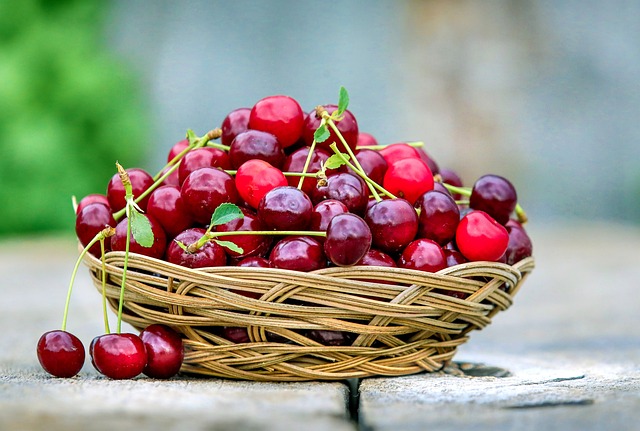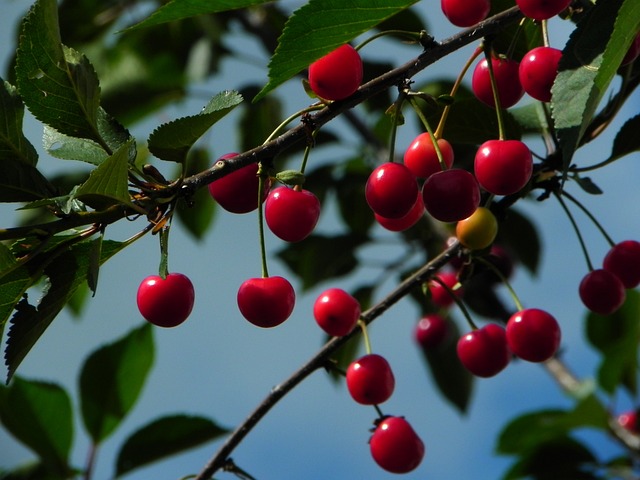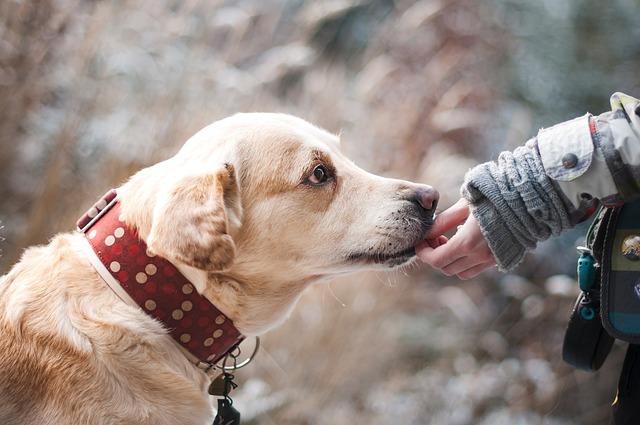As a dog owner, you’re probably aware that some fruits are great for dogs, while others can be dangerous. So, can dogs have cherries? The answer is a little complicated. While cherries offer some health benefits for humans, they pose risks to our furry friends. Let’s dive into the details to answer the question, “Can dogs have cherries?” and what you need to know to keep your dog safe.

Can Dogs Have Cherries? The Short Answer
The short answer to “can dogs have cherries” is yes—but with serious precautions. Dogs can technically eat the fleshy part of a cherry, but the pits, stems, and leaves are toxic. These parts of the cherry contain cyanide, which is dangerous for dogs.
Even though the flesh is safe, it’s not worth the risk in most cases. One slip, and your dog could ingest something harmful. Because of this, many vets and experts will tell you that it’s better to avoid cherries altogether when it comes to dogs.

Why Are Cherries Dangerous for Dogs?
You might wonder why there’s so much concern surrounding this simple fruit. Here’s the thing: can dogs have cherries safely? Yes, but only if every pit, stem, and leaf is removed—and that’s a risky process.
- Cyanide Toxicity: The cherry pit, stem, and leaves all contain cyanide, which can be lethal to dogs. Cyanide interferes with the oxygen supply in your dog’s blood, leading to symptoms like difficulty breathing, red gums, and shock.
- Choking Hazard: Even if cyanide wasn’t a concern, the cherry pit poses a significant choking hazard, especially for smaller dogs. It can also cause an intestinal blockage, which would require surgery.
- Too Much Sugar: Even the flesh of the cherry, while not toxic, contains quite a bit of sugar. Can dogs have cherries in large amounts? No. The sugar content can upset their stomachs, leading to diarrhea or an upset stomach.
Can Dogs Have Cherries? What About Maraschino or Canned Cherries?
So, what if you’re dealing with pitted or processed cherries like maraschino or canned cherries? Can dogs have cherries in those forms? These versions of cherries are still not a great option for dogs.
- Maraschino Cherries: While maraschino cherries don’t have pits, they’re loaded with sugar and preservatives. Feeding them to your dog could lead to weight gain, tooth decay, and other health issues.
- Canned Cherries: Similar to maraschino cherries, canned cherries usually contain added sugar, which can upset your dog’s digestive system.
In general, it’s best to steer clear of cherries in all forms.

Signs of Cherry Toxicity in Dogs
If your dog accidentally eats a cherry (or worse, the pit, stem, or leaves), you’ll need to act quickly. It’s important to recognize the signs of cherry toxicity in dogs. Here’s what to look for:
- Difficulty breathing: Cyanide poisoning can make it hard for your dog to breathe properly.
- Bright red gums: This is a telltale sign of cyanide poisoning.
- Dilated pupils: Another sign that something isn’t right.
- Shock or collapse: In severe cases, your dog may go into shock or collapse.
If you notice any of these symptoms, contact your vet immediately.
Can Dogs Have Other Fruits Instead?
Now that you know the risks, you might be wondering if there are safer fruit options for your dog. Absolutely! If you’re still asking, can dogs have cherries, consider these healthy alternatives instead:
- Blueberries: A great low-sugar option packed with antioxidants.
- Apples: As long as the seeds and core are removed, apples are a crunchy and healthy treat.
- Bananas: High in potassium and fiber, bananas make a great occasional snack.
These fruits are much safer than cherries and offer health benefits without the risks.

Final Verdict: Can Dogs Have Cherries?
So, can dogs have cherries? Technically, yes, but the risks far outweigh the benefits. With the danger of cyanide poisoning, choking, and intestinal blockages, it’s best to keep cherries out of your dog’s diet entirely. Instead, choose safer fruits like blueberries or apples. When it comes to your pet’s health, it’s better to be safe than sorry.






